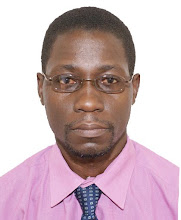HEPS-Uganda’s HIV/AIDS work is set to expand following a new partnership with the AIDS Vaccine Advocacy Coalition (AVAC), a global HIV prevention advocacy organisation based in New York.
Under the one-year partnership, HEPS is hosting an AVAC prevention research advocacy fellow and is jointly implementing a fellowship project that aims to contribute to a better understanding and appreciation of biomedical HIV prevention research and advocacy among the civil society and media.
The fellowship is a joint programme of the AIDS Vaccine Advocacy Coalition (AVAC) and the Global Campaign for Microbicides (GCM). The programme started in 2009 and the pioneer lot of fellows who are implementing fellowship projects based in Uganda and other countries in east and southern Africa.
A second selection of what is planned to be an annual cycle is expected in mid-2010 for fellows that will implement projects in 2011.
The AVAC/GCM fellowship programme pairs emerging advocates and activists with HIV/AIDS civil society organisations in countries affected by the HIV/AIDS epidemic to implement targeted short projects in the field of HIV prevention research, including AIDS vaccines, microbicides, pre-exposure prophylaxis, medical male circumcision and others.
The programme builds the capacity of individual advocates and their host organisations and mentors them through technical and financial support to become more effective advocates for HIV prevention research.
Out of the various new options for HIV prevention that scientists are exploring, only medical male circumcision has proved to significantly reduce the risk of HIV infection.
HIV vaccines, microbicides (gels used by women before sex to try to reduce infection) post-exposure prophylaxis (the use of ARVs by HIV-negative people to prevent infect), have not yet proved effective, but a broad spectrum of research in exploring many potential products.
There is an urgent need to expand the tools for HIV prevention because many people still get infected each passing day in spite of the national and international campaigns to increase access to and utilisation of the available, established behavioural change strategies of abstinence, faithfulness and condom use.
Over the course of 2010, HEPS Uganda is hosting me. I previously worked as Communication Manager with HEPS. I went through a highly competitive process to become one of the nine (2009/2010) pioneer fellows, two of whom are in Uganda.
The fellowship project will involve analysing the effects of HIV prevention research clinical trial on communities, using the case of the trial of the microbicide candidate PRO 2000 in Masaka, which was concluded last year, and other past and ongoing clinical trials in Uganda.
This process will identify best practices in trial engagement with the community that should be emulated in future trials and highlight areas that need further work and advocacy. Using the evidence from this process, I will implement advocacy activities to increase civil society and media understanding, appreciation and advocacy in the field of HIV prevention research.
By May 2010, the project had finalised data collection in Masaka and Kampala on community experiences and perceptions about the Masaka microbicide trial.
As part of the data collection process, HEPS Uganda and I hosted investigators in the Masaka trial representatives of media and civil society in a one-day dialogue that discussed the way forward after the trial that showed that the candidate microbicide tested (PRO 2000) was not effective in preventing HIV infection in women.
The analysis and report writing process was still underway, but the fellow was due to present the fellowship work at the 2010 International Microbicides Conference in Pittsburgh, USA, on May 24th 2010.
My advocacy work for HIV prevention research started in 2007 when he was part of a media and advocacy mapping study for new prevention research in Uganda, which HEPS-Uganda implemented in partnership with Journalists Against AIDS of Nigeria.
Subscribe to:
Post Comments (Atom)

No comments:
Post a Comment